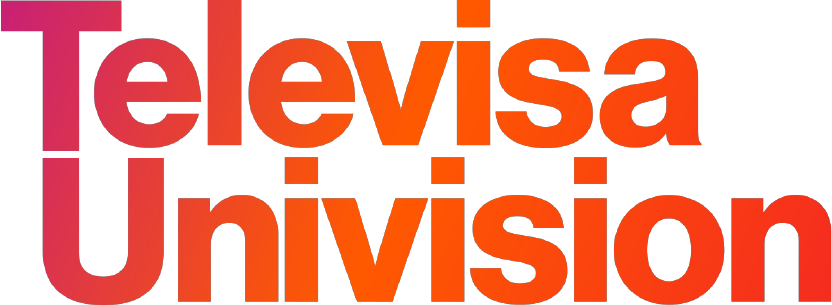
1
U.S. ADVERTISING STANDARDS AND GUIDELINES
(ALL MEDIA) 2023
2
TABLE OF CONTENTS
INTRODUCTION .................................................................................................................................................................... 4
Clearance of Advertising Procedure ............................................................................................................................... 5
Confidentiality .................................................................................................................................................................. 5
Claim Substantiation ........................................................................................................................................................ 5
Community Sensibilities .................................................................................................................................................. 6
Comparative Advertising ................................................................................................................................................. 6
Competitive Media ............................................................................................................................................................ 6
Contests and Sweepstakes ............................................................................................................................................. 7
Controversial Content ...................................................................................................................................................... 7
Data Collection ................................................................................................................................................................. 7
Digital ................................................................................................................................................................................ 7
Disclaimers/Supers/Crawls/Disclosures ........................................................................................................................ 8
Dramatizations and Re-Enactments................................................................................................................................ 8
Endorsements and Testimonials .................................................................................................................................... 8
Environmental Claims ...................................................................................................................................................... 9
Language .......................................................................................................................................................................... 9
“Live” ................................................................................................................................................................................ 9
Multiple Products/Services in Advertising and Infomercials ........................................................................................ 9
National Availability ......................................................................................................................................................... 9
New/Introducing ............................................................................................................................................................... 9
News Techniques ........................................................................................................................................................... 10
Programmatic Advertising ............................................................................................................................................. 10
Piracy and Infringing Activities ..................................................................................................................................... 10
Programmatic ................................................................................................................................................................. 10
Public and Governmental Symbols............................................................................................................................... 10
Safety .............................................................................................................................................................................. 10
Sponsor ID/Commercial Mentions ................................................................................................................................ 10
Subliminal Messages ..................................................................................................................................................... 11
Talent/Brands/Logos/Programming in Advertising ..................................................................................................... 11
Telephone Number Information .................................................................................................................................... 11
Texting Services ............................................................................................................................................................. 11
Third-Party Rights .......................................................................................................................................................... 11
Use of TU Intellectual Property ..................................................................................................................................... 11
Reservation of Rights .................................................................................................................................................... 12
ADVERTISING CATEGORIES ............................................................................................................................................. 13
Adult Products................................................................................................................................................................ 13
Advocacy ........................................................................................................................................................................ 13
Alcoholic Beverages ...................................................................................................................................................... 13
Animals ........................................................................................................................................................................... 14
Anti-Law Enforcement Devices ..................................................................................................................................... 15
Automobile Dealers ........................................................................................................................................................ 15
Bait and Switch Techniques .......................................................................................................................................... 15
Billboards ........................................................................................................................................................................ 15
Cannabidiol (“CBD”) ...................................................................................................................................................... 15
Charitable Appeals ......................................................................................................................................................... 16
Children's Advertising ................................................................................................................................................... 16
Direct Response ............................................................................................................................................................. 18
Emergency Advisories ................................................................................................................................................... 18
Financial Advertising ..................................................................................................................................................... 18
Firearms/Weapons ......................................................................................................................................................... 19
Fireworks ........................................................................................................................................................................ 19
Food And Nutrition ......................................................................................................................................................... 20
Gambling ......................................................................................................................................................................... 20
Get-Rich Quick Schemes ............................................................................................................................................... 22
Guaranty/Warranty ......................................................................................................................................................... 22
Health Related Products ................................................................................................................................................ 22
Hypnotism Services ....................................................................................................................................................... 24
Illegal Drugs .................................................................................................................................................................... 24
Infomercials .................................................................................................................................................................... 24
Investment Services ....................................................................................................................................................... 25
Mail Order/Telephone Order .......................................................................................................................................... 25
Motion Picture and Home Entertainment Advertising ................................................................................................. 25
3
Personal Products Advertising ..................................................................................................................................... 25
Political Advertising ....................................................................................................................................................... 25
Premiums/Offers ............................................................................................................................................................ 26
Professional Services .................................................................................................................................................... 26
Public Service Announcements .................................................................................................................................... 26
Psychic Entertainment Services ................................................................................................................................... 26
Religious Products/Services Advertising ..................................................................................................................... 27
Social/Dating/Chat Services .......................................................................................................................................... 27
Telehealth Platforms ...................................................................................................................................................... 27
Tobacco Products (Inc. Electronic Cigarettes) ............................................................................................................ 28
Vacation Clubs/Timeshare ............................................................................................................................................. 28
Video Games .................................................................................................................................................................. 28
Weight Loss .................................................................................................................................................................... 29
4
INTRODUCTION
TelevisaUnivision, Inc. and/or, as applicable, its affiliated and subsidiary companies (collectively, “TU”), own and operate
various public facing properties (“TU Properties”), including, without limitation: television broadcast networks (e.g.,
Univision and UniMás); local television and radio stations; television cable networks (e.g., Galavision, TUDN, FOROtv,
Univision tlNovelas, Bandamax, De Pelicula, De Pelicula Clásico, Telehit, Telehit Música); direct to consumer, streaming,
and on demand properties (e.g., ViX, Univision Now); audio properties (e.g., UFORIA radio network, podcasts); and
associated and/or various digital properties and social media accounts. TU serves a broad and diverse audience,
composed of the vast and fast- growing Spanish-speaking population, which encompasses many countries of origin and
cultures.
These Advertising Standards and Guidelines (“Guidelines”) apply to TU within the United States of America and are
intended as a tool to assist advertisers, advertising agencies and promotional representatives. They must be observed
in the creation and production of advertising, including, without limitation, infomercials, billboards, promotions, and other
advertising materials for distribution and insertion by TU.
These Guidelines are not meant to be all-inclusive but are instead intended to provide the general framework necessary
to maintain the quality and integrity of advertising that will be accepted for distribution by TU, which will additionally be
subject to the terms and conditions of the underlying agreement contemplating the applicable advertising placement. TU,
from time-to-time, at any time, and at its sole discretion, may modify these Guidelines for any reason, including, without
limitation, so as to accommodate changes in applicable laws, rules, and regulations (all such laws, rules, and regulations,
including federal, state, and local iterations thereof, “Legal Requirements”) or changes in TU (or industry) practices.
TU’s Guidelines require that all advertising made available in any manner by TU be presented in a manner that is truthful,
tasteful, and not misleading or deceptive. Advertising must fully comply with Legal Requirements, including, without
limitation, regulations issued by the Federal Trade Commission (“FTC”), Food and Drug Administration (“FDA”) and
Federal Communications Commission (“FCC”).
The advertiser has the ultimate responsibility of complying with all Legal Requirements. The advertiser should be
particularly diligent with claims made in advertising, as all such claims must satisfy the FTC’s substantiation standards.
Additionally, advertising “content” must be clearly and accurately presented as such to avoid any ambiguities and to
avoid confusing the audience. Advertisers are encouraged to consult with their professional advisors regarding all
applicable Legal Requirements.
TU MAY REQUIRE, AS A CONDITION OF ACCEPTING PROFFERED ADVERTISING, ANY REVISIONS DEEMED
NECESSARY IN TU’S SOLE DISCRETION TO CONFORM TO THESE GUIDELINES OR TO ANY LEGAL
REQUIREMENTS. TU RESERVES THE RIGHT, IN ITS SOLE DISCRETION, TO AT ANY TIME: (1) ACCEPT, REJECT
OR REQUIRE REVISION OF ANY ADVERTISING OR OTHER MATERIAL SUBMITTED FOR DISTRIBUTION,
WHETHER OR NOT IT COMPLIES WITH THESE GUIDELINES; (2) EXPAND OR LIMIT ADVERTISING
SCHEDULING BASED ON CONTENT CONSIDERATIONS, AUDIENCE COMPOSITION AND PROGRAM
COMPATIBILITY; (3) INVESTIGATE ALL ADVERTISERS AND THE ACCURACY OF ALL STATEMENTS AND
CLAIMS MADE IN ADVERTISING MATERIALS; AND (4) REVOKE ITS APPROVAL OF ANY ADVERTISING THAT
IS INCONSISTENT WITH TU’S STANDARDS, POLICIES, AND/OR IN RESPONSE TO EMERGENCY
CIRCUMSTANCES OR SITUATIONS OF UNUSUAL SIGNIFICANCE. SUCH ACTIONS WILL IN NO MANNER BE
CONSTRUED AS A WAIVER OF ANY RIGHTS BY TU, NOR ANY RIGHTS AND REMEDIES THAT MAY BE
AVAILABLE TO TU AT LAW, IN EQUITY, UNDER CONTRACT, OR OTHERWISE.

5
Clearance of Advertising Procedure
All advertising to be distributed on TU Properties is subject to review and approval by TU’s Advertising Compliance
department (“Ad Compliance”). Ad Compliance endeavors to review all TV advertising in prior to distribution, but Ad
Compliance may review any and all advertising on TU Properties at any time and require corrective action if necessary.
All times and dates set forth in these Guidelines are, except as may otherwise be set forth, in local time in the
applicable area. For clarity, Ad Compliance review of advertising will in no manner be deemed an assumption of
liability thereof and, notwithstanding any such review or approval, advertiser will remain liable for the contents of all
advertiser advertising at all times.
To initiate Ad Compliance review, advertiser should submit:
• A copy of the advertising (if produced) or if the advertising is not yet produced, a rough-cut copy, storyboard or
script; and
• Any required substantiation of claims made in the ad (see “Claim Substantiation” below).
In addition, Ad Compliance may request the following:
• A product sample and label/package insert;
• Authentication of all testimonials and/or comparisons;
• Studies, surveys, tests, research reports, and other data furnished or generated by professional institutions that
provide a basis for the claim(s) presented; and
• Any other item or information deemed necessary or advisable to comply with these Guidelines, company
policies, or Legal Requirements.
To avoid delays in the distribution of advertising, materials must be submitted in accordance with TU Ad Compliance
requirements and sufficiently (at least ten days) in advance of the scheduled distribution date.
Advertising must contain sufficient sponsorship ID so as not to be mistaken for programming, including, without limitation,
so as to comply with Legal Requirements. Advertising distributed on any TU broadcast Properties must comply with FCC
rules governing sponsorship identification, including, without limitation, rules governing disclosure at the time of a
broadcast if a foreign governmental entity paid a radio or television station, directly or indirectly, to air material.
The display of record label/song title/artist names may be prohibited during advertising on TU music properties.
The display of a network bug/watermark is prohibited in advertising for competitive programming.
Horizontal crawl techniques may not be used where such could be confused with the presentation of news information.
Questions regarding the Guidelines and materials delivery should be directed to advertiser’s applicable Account
Executive.
Confidentiality
All information and materials submitted by advertiser(s) to TU Ad Compliance will be treated confidentially.
Claim Substantiation
All material claims, express or implied, including references to the results of research and surveys or tests must adhere
to Legal Requirements, including, without limitation, those of the FTC and FDA.
Ad claims must be substantiated with valid and relevant scientific and/or market research. Substantiation may include
such research methods, as laboratory testing, clinical studies, surveys and field tests.
To avoid post-production revisions or other last-minute issues, appropriate substantiation must be submitted in
accordance with TU Ad Compliance requirements and sufficiently (at least ten days) in advance of the earlier of
production or the scheduled distribution date.

6
Substantiation must be submitted to Ad Compliance for review at [email protected]
Any Ad Compliance approvals will expire either one (1) year from the date of initial approval or at such time as any
previously provided substantiation is no longer valid, whichever date is earlier. For example, if new scientific research
shows that an ingredient used in a product no longer yields the results that are reflected in advertising that was approved
by Ad Compliance, the approval will expire. Advertisers must notify TU in writing if previously provided substantiation
has been determined to be invalid. It is the advertiser’s responsibility to update substantiation even if it has been less
than one year from the original date of approval.
Community Sensibilities
Advertising must be free of obscene, indecent, profane, vulgar, or any other language or gestures, and/or images that
TU believes, in its sole discretion, may be offensive or violate Legal Requirements.
Advertising must be free of presentations that stereotype or demean persons on the basis of their sex or sexual
orientation, culture, ethnic origin, color, creed, religion, culture, or impairments. TU will not accept any advertising that it
believes, in its sole discretion, may misrepresent, ridicule, discriminate against, or attack an individual or group of
individuals on the basis of race, sex, sexual orientation, religion, creed, age, national origin, ethnic derivation, physical
mental handicaps, or any other reason to avoid damaging or demeaning stereotypes.
Advertisers are urged to exercise caution to ensure that language acceptable in some Spanish-speaking communities,
but offensive in others, is not used inadvertently.
Advertising that promotes or depicts violence, crime, or any other forms of anti-social behavior is unacceptable.
Notwithstanding the foregoing, ads for “true crime” programming may be approved by TU on a case-by-case basis.
Due to heightened community sensitivities during national and international tragedies, it may be necessary to reconsider
or reexamine audio and/or video in advertising messages, even if previously approved.
Comparative Advertising
Comparisons and demonstrations must be based on specific differences between the products or services advertised,
comparing similar or related properties or ingredients. Such comparisons must be significant and meaningful.
Advertising that includes comparisons, demonstrations, tests, experiments, or other such exhibitions requires submission
of an affidavit signed by the producer of the advertising (or another supervisory individual) who personally observed the
production. Such affidavit must attest that: the demonstration is accurate; the demonstration was performed with samples
of the product available to consumers or prototypes that perform no differently than the actual product; and, no mock-
ups, modifications, or alterations were employed. Alterations or modifications of products or demonstrations may be
utilized provided that they are clearly disclosed to the viewer and that viewers are not misled with respect to a material
product feature.
The advertiser must substantiate all comparative claims made in advertising, meet all Legal Requirements, regulatory,
and industry standards (including, without limitation, standards of the National Advertising Division of the Council of
Better Business Bureaus), and observe the following:
• To the extent competitors are identified, present them fairly. If competitors are not identified, the claim must be
true against 85%+ of the relevant market.
• Avoid the use of unfair business practices including, without limitation, the use of any content which could
disparage, defame, slander, libel or present competitors in a deceptive, misleading or potentially misleading
light.
• Use side-by-side product comparisons only if the advertiser satisfies all substantiation of claims requirements.
Competitive Media
TU, at its sole discretion, may consider advertising from competitive media companies (i.e., other television/radio
programmers and/or streamers) based on the following standards.
• Any mention of day, date or time of the program/event in the advertising is subject to case-by-case approval by
TU.

7
• No ads promoting non-TU Spanish language media/programming.
• Creative should not exceed a duration of thirty seconds; provided that TU may approve creative up to 60 second
on a case-by-case basis.
TU may reject any advertising that in its sole discretion is contrary to TU’s business interests.
Contests and Sweepstakes
Advertising for an advertiser-sponsored contest or sweepstakes is acceptable. However, advertisers are obligated to
design and undertake contests/sweepstakes in compliance with applicable Legal Requirements, including, without
limitation, those that address lotteries, games of chance, prizing, and gifts. Advertising that includes
contests/sweepstakes must comply with Legal Requirements, including, without limitation, providing the following
information:
• How to obtain a complete set of rules.
• Approximate retail value of the prize.
• Information on alternative methods to enter (if applicable).
• Entry deadlines of the promotion.
• Restrictions and/or eligibility requirements.
• Name and contact information on sponsors or prize suppliers.
• A reference to participating locations if only certain retail outlets are involved in the promotion.
• Proof of bonding and registration (when required by Legal Requirements)
• Statements with the disclosures “No Purchase Necessary” and “Void Where Prohibited.”
Advertisers must retain a hard copy of the promotion rules and/or provide a hard copy to TU.
Controversial Content
TU will consider on a case-by-case basis advertising that presents a position on issues of public controversy.
TU reserves the right to accept or reject such advertising at all times at its sole discretion.
All approved advertising may be restricted from specific programming or TU Properties.
Advertising that presents a position on issues of public controversy may be unacceptable if:
• Its content, or other content referenced in or associated with the ad, or otherwise disseminated by the advertiser,
is deemed offensive;
• It is an attack of a personal nature, an attack on an individual business, or a comment on a private dispute;
• It contains violent or otherwise graphic or potentially offensive content that is deemed to be inappropriate for
TU’s audience or incompatible with any of TU’s other advertising standards;
• Its content or style of production is otherwise deemed inconsistent with any corporate policy or general
standards, as determined by TU in its sole discretion.
Data Collection
Advertisers may not collect any personal information whatsoever through advertising materials on TU Properties absent
TU’s prior written approval and at TU’s sole discretion. To the extent approved, any and all collection and processing of

8
personal information must be in full compliance with TU’s requirements and all Legal Requirements, including, without
limitation, applicable privacy laws, data protection laws, advertising industry self-regulatory codes, guidelines and
standards, and platform terms and policies. All third party technology included or appended to advertising by or on behalf
of an advertiser, including, without limitation, tags, pixels or other software code, will be subject to TU’s prior written
approval and at TU’s sole discretion.
Digital
TU encourages advertising on its digital properties (e.g., websites, applications, social platforms, DTC platforms, etc.)
and their associated properties and brands (e.g., talent, program titles, characters, etc.), including, without limitation, ViX,
so long as such is in compliance with all Legal Requirements, including, without limitation, the Digital Advertising Alliance
and rules promulgated by the FTC and COPPA and the CARU guidelines.
In addition to the Guidelines, the following must be adhered to when advertising on any of TU's digital properties:
• The advertising content must be clearly identifiable as advertising, as opposed to a link within TU Property
content. Advertisers must be clearly identified by name in at least one frame of the advertising content.
• Ad units that have a white or partially white background must be bound by a visible one-pixel non-white box
built into the graphic. Creative must also meet size specifications with border.
• All advertisers must have a privacy policy no more than one click from the linking page to the ad unit.
• Alt text cannot exceed maximum thirty characters.
• User initiated audio is allowed. Host initiated sound is not allowed.
• Placeholder or non-final ad content will not be considered as "proxies" for final creative.
• Digital advertising materials must comply with TU’s Ad Specifications.
• With respect to browser-based environments, ad units must have a linking URL that resolves to an active page
and all linking creative must open in a new window.
For more information regarding advertising on digital properties, please refer to TU’s Ad Specifications and Privacy Policy.
Disclaimers/Supers/Crawls/Disclosures
Disclaimers cannot be used to contradict or materially alter an advertising claim or to disclaim potentially illegal activity.
If superimposed copy is used to qualify advertising claims, such copy must be presented so it can be read easily against
a plain contrasting background and located within the safe title area of the screen.
Unless otherwise required to comply with Legal Requirements, the first line of every visual super must appear on screen
for at least three seconds. Every additional line must appear for at least one second (e.g., five seconds total for a three
line disclaimer). Visual disclaimers must appear in a font that is easy to read and remain on the screen long enough to
be noticed, read, and understood by an average viewer.
Audio disclaimers must be clear and loud enough to be easily heard and understood by an average viewer.
Horizontal crawls in the lower third of the screen are not acceptable.
Ad Compliance may request specific disclaimers/disclosures depending on the service, product, or promotion being
advertised.
Dramatizations and Re-Enactments
Advertising containing dramatizations or reenactments of actual events must include a disclosure informing the viewers
that the event is a dramatization or a re-enactment.
Endorsements and Testimonials
When there is a connection between the endorser and the seller of the advertised product that might materially affect
the weight or credibility of the endorsement, such connection must be fully disclosed in a disclaimer. Endorsements and
testimonials are required to comply with the FTC’s Guides Concerning the Use of Endorsements and Testimonials in
Advertising and advertisers are required to adequately substantiate all express and implied claims made via
endorsements.

9
If requested by TU, the advertiser must provide a signed name, likeness and testimonial affidavit and release, as
applicable, from all persons used as endorsers in the advertising.
Endorsements and testimonials must honestly and accurately reflect the opinions, findings, or experience of the individual
endorsing the product or giving the testimonial and may not contain representations that would be deceptive or could not
be substantiated if made directly by the advertiser.
If an endorsement on a central or key attribute of a product or service is not representative of what consumers will
generally achieve with the advertised product, the advertising should either clearly and conspicuously disclose:
• what the generally expected performance would be in the depicted circumstances;
• or the limited applicability of the endorser's experience to what consumers may generally expect to achieve.
Endorsements by TU talent must be approved in writing by TU.
With respect to endorsements on social by talent, creators or influencers of advertiser products and/or services, such
endorsements must comply with the FTC’s latest guidelines by clearly and conspicuously disclosing the nature of the
endorsement, in particular with respect to text-based disclosures in the endorsement copy (in the same language as the
rest of the copy), visual disclosures in-video, and audio disclosures where endorsements are made verbally in-video.
Environmental Claims
Advertising must comply with Legal Requirements, including, without limitation, the FTC’s Guides for the Use of
Environmental Marketing Claims; any express or implied claims regarding an environmental attribute of a product,
package or service must have a reasonable basis, including, without limitation, descriptors such as: “eco-friendly,”
“climate-friendly,” “green,” “recyclable,” “non-toxic,” “biodegradable,” and “compostable.” Such descriptors must be
appropriately qualified.
Language
Spanish language should be used in all advertising/paid programs, subject to the following exceptions and variations or
as may be approved in writing by TU.
• Advertising
English language advertising may be acceptable on TU Properties during tent pole events, sports programming,
and advertising for movie trailers, music, taglines, video games, etc. that are inherently in a language other than
Spanish.
In addition, at TU’s discretion, UniMás, Galavision, Bandamax, De Pelicula, De Pelicula Clásico, Telehit, Telehit
Música and local audio and digital properties may accept English-language advertising.
TU will accept bilingual and dubbed spots.
TU accepts subtitled spots, however use of subtitling should be minor.
• Infomercials (Paid Programs)
English language and/or bilingual infomercials may be permitted from time to time; market and time scheduling
restrictions may apply.
Dubbed and subtitled Infomercials may be allowed on TU on a case-by-case basis.
“Live”
TU will not accept advertising that includes the word “live” when inaccurately identified or misrepresented as a real time
distribution.
Multiple Products/Services in Advertising and Infomercials
Advertising may not portray more than one product/service at the same time unless the product/service is part of an

10
overall advertising campaign (e.g., restaurant chain includes toy characters from a movie with their children’s meals).
National Availability
Advertising for products or services as available “nationally” will require that the product or service advertised has
reached at least 51% U.S. distribution by means of any generally available distribution channel (e.g., retail, advertiser
application or website) at the time such advertising is distributed, unless otherwise clearly disclosed in the advertising
(e.g., “Coming Soon,” “Not yet available in all areas,” or “Available for preorder”). Unless available at all locations,
advertising for franchise or chain retail outlets must indicate that the product or service is only available at participating
stores.
New/Introducing
FTC policy denotes that advertisers may only use the term "new" for a period of six months from the time a product has
achieved national (51%) distribution. Product samples and/or labeling may be required for new products.
News Techniques
Advertising may not contain language, audio/visual approaches nor formats that simulate news content/settings which
could create confusion. TU in its sole discretion may prohibit other techniques.
Piracy and Infringing Activities
The intellectual property rights of others is respected by TU. Advertising for services, products or other mechanisms that
infringe, or may be used to infringe, others’ intellectual property rights will not be knowingly accepted by TU. Advertising
that includes infringing activity includes, without limitation, the illegal dissemination of content; the selling/offering of
content on unauthorized platform(s); the circumvention of copyright, trademark, or other affixtures in representation of
content ownership; and/or any other unauthorized peer-to-peer sharing of content. TU will hold the advertiser responsible
for any and all claims based on intellectual property infringement or misuse.
Public and Governmental Symbols
Advertising must be free of any disrespectful use of any flag, national emblems, anthems, monuments, or similar indicia.
Direct or implied use of the office of any governmental body or figure without official approval is not acceptable. The use
of military or law enforcement uniforms or vehicles requires prior written approval from the relevant government agencies.
Safety
Advertisers must at all times comply with and portray compliance with safety procedures under applicable Legal
Requirements, policies and practices prescribed by the entertainment and/or advertising industries, or that are otherwise
prudent in TU’s sole discretion (e.g., use of seatbelts in auto vehicles, helmets for bicycles, and recreational safety
equipment). All advertising that disregards normal safety precautions will not be accepted. Unqualified references to the
safety of a product are not acceptable, including, without limitation, if the package, label, or insert contains a caution or
the normal use of the product presents a possible hazard. Words like “safe,” “harmless,” or other words/phrases with
similar meaning will be considered on a case-by-case basis when qualified and substantiated by sufficient studies.
Particular attention must be paid to ensure that children are not inadvertently encouraged to undertake dangerous
activities. Children may not be represented, except under proper adult supervision, as using or being in proximity to a
product or a situation recognized as potentially dangerous to them.
Sponsor ID/Commercial Mentions
Sponsorship identifications must comply with the Communications Act, with FCC rules and regulations, and any other
Legal Requirements, as these may be amended from time to time. Appropriate identification of the sponsor(s) must be
made in all cases.
• TU Programming
Certain TU programming may provide opportunities for the paid placement or integration of commercial products
or services. Any placement or integration of a product in such a program will always be disclosed when
distributed, at the time the program is distributed, with language such as “promotional consideration paid by” or
“sponsored by,” as required by Legal Requirements. Also, if a party provides any consideration (including,
without limitation, prizes) to have specific program material distributed, then there must be a disclosure when

11
distributed that the program material or promotion is “sponsored by” or “paid for by” that party. Any “teaser”
advertising the program material or promotion must mention the name of the sponsor or its product. All
programming must follow TU’s programming guidelines. TU does not provide product placement or integration
within newscasts and does not provide news coverage in exchange for business. TU may, on a case by case
basis, allow the sponsorship of certain sports, health, weather, and specialty segments in newscasts, subject
to appropriate disclosures.
• Standard Advertising
With respect to standard advertising for a commercial product or service that is clearly advertising (e.g., not a
product integration or placement), it is sufficient sponsorship identification for the advertising to mention the
sponsor’s corporate name, trade name or product name in the content. Issue and candidate advertising are
subject to additional disclosure requirements. A website URL does not necessarily constitute adequate
sponsorship identification unless it is the official name of the sponsoring entity.
Subliminal Messages
The use of subliminal perception techniques is unacceptable. Any audio or video technique that attempts to convey
information to the viewer by transmitting below the threshold of normal awareness (e.g., an image that registers
subconsciously) is not permitted.
Talent/Brands/Logos/Programming in Advertising
Requests for the inclusion, use, or mention of TU talent, brands, logos, or programming in advertising will be considered
on a case-by-case basis and will require prior written approval from authorized TU personnel and at TU's sole discretion.
It is TU’s standard policy not to permit news anchors or reporters to appear in advertising announcements, and talent is
prohibited to voice or appear in political advertising or to request donations absent TU prior written approval and at TU's
sole discretion.
Telephone Number Information
• U.S. Domestic
Advertising that includes telephone number information must disclose the applicable area code.
• International
In the event an international telephone number is included, it must be clearly stated that any additional charges
may apply.
• 900 Services (Entertainment)
In the event a 900 telephone number is included, the advertising may be accepted provided that the following
is contained:
o The cost of the initial phone call and the charges for each minute thereafter.
o Information regarding the cost for party lines, conference calls, or any other pay-per-call services to which
the caller may be transferred.
o A statement to the effect that the service is available only to individuals 18 years of age or older.
TU should be assured by the advertiser that the public will be able to communicate with the advertiser in the Spanish
language.
Texting Services
TU will accept advertising for mobile texting provided that it complies with all Legal Requirements. Where applicable, the
advertising must adequately disclose that message and data rates may apply.
Third-Party Rights
TU will not accept advertising that includes any element of intellectual property for which the advertiser has not obtained

12
the owner’s consent to use, including, without limitation, music rights and rights of publicity.
TU will also not accept advertising that gives rise to any other colorable claim of infringement, misappropriation or other
form of unfair competition.
Submission of advertising materials constitutes advertiser’s representation and warranty to TU that all elements of such
advertising have been lawfully cleared with respect to intellectual property rights. Advertiser must submit proof of
clearance upon request by TU.
Use of TU Intellectual Property
Advertisers may not create associations or sponsorships or imply any other relationship with TU (e.g., TU
material/footage, TU logos, trademarks or tradenames, programming, brands, titles, talent, characters) without prior
written consent and at TU’s sole discretion. The use of TU-branded assets, intellectual property, talent, and/or characters
in advertising materials, including, without limitation, any association by an advertiser with any of the foregoing, is
expressly prohibited absent TU’s prior written approval and at its sole discretion and, if approved, is subject to TU’s
requirements in each instance and may be revoked at any time at TU’s sole discretion.
Reservation of Rights
TU expressly reserves all rights with respect to its business and operations including, without limitation, the clearance,
scheduling, programming, and distribution of advertising and, in its sole discretion, TU may (or may not):
• Review advertising and accept or reject any advertising at any time prior to the scheduled distribution time, or
anytime thereafter.
• Conduct background or financial inquiries on advertisers.
• Confirm/investigate the accuracy of the statements/claims presented in advertising.
• In addition to the documentation that an advertiser is required to provide under these Guidelines, TU may
require an advertiser to furnish additional documentation to substantiate, to TU’s satisfaction, any of the claims
made in advertising.
• Require an advertiser to eliminate, add or revise any element of advertising.
• Revoke the prior clearance of any advertising.
• Determine the scheduling, format, quantity and length of all advertising breaks during and adjacent to programs
distributed by TU.
• Determine the number and placement of advertising.
• Determine what promotions and other announcements are placed within each advertising break.
THE FINAL AND OVERRIDING PRINCIPLE OF THESE GUIDELINES IS THAT TU RESERVES THE RIGHT, IN ITS
SOLE DISCRETION, TO ACCEPT, REJECT OR REQUIRE REVISION OF ANY ADVERTISING SUBMITTED FOR
DISTRIBUTION AT ANY TIME, WHETHER OR NOT THEY COMPLY WITH THE GUIDELINES.
The implementation of these Guidelines will be supervised by TU’s Ad Compliance department. Any legal questions
regarding these Guidelines or their implementation should be referred to the office of TU’s General Counsel.

13
ADVERTISING CATEGORIES
In addition to complying with all Legal Requirements, TU also requires compliance with the following standards for
advertising in the following categories:
Adult Products
TU does not accept advertising for sexually explicit publications, products or services, but will accept tasteful and
sensitive advertising for non-explicit and beneficial intimate, personal care, contraceptive, and fertility products or
services on a case-by-case basis. Subject to approval, scheduling restrictions may apply at TU’s sole discretion. See
Community Sensibilities section above.
Alcoholic Beverages
Advertising for alcohol products and services should reflect generally-accepted contemporary standards of good taste.
Any advertising for or featuring alcoholic beverages may be subject to scheduling restrictions based upon the nature of
the advertised product, audience composition, and other factors. The use of TU talent, professional athletes, or amateur
sports figures in advertising for alcoholic beverages will be considered on a case-by-case basis and require prior written
approval from authorized TU personnel and at TU’s sole discretion. Advertisers must review and comply with DISCUS
guidelines and Legal Requirements in connection with the advertising of alcoholic beverages.
The following disclosures are required:
• The corporate name, city, and state address of the beverage brewer, producer, packer, wholesaler, or importer
responsible for the advertising’s distribution.
• The corporate name of the distiller/distributor when the name is part of the brand name or required by Legal
Requirements.
• A “drink responsibly” or similar message in audio and/or video.
The following are unacceptable:
• Targeting, portraying or encouraging alcohol consumption by individuals that are not of legal age.
• Equating alcoholic drinks or products with a “mark of adulthood” or “rite of passage.”
• Portraying the use of alcoholic products as necessary to maintain a certain social status or to achieve personal
success, sexual prowess, athletic success, to relieve stress or solve personal problems or as the sole purpose
for an activity.
• The use of terms such as “extra strength” in association with alcohol products.
• Promoting the alcoholic product by portrayal or claims of its “intoxicating effects.”
• Associating alcohol consumption with any activity that demands alertness, dexterity, sound judgment or safe
operation of machinery.
• Portraying excessive consumption, drunkenness, or loss of control and inhibitions as positive or humorous.
• Degrading the image, form, or status of women, men, or of any ethnicity, minority, sexually-oriented, religious,
or other group in the use of alcoholic products.
• The use of any lewd or indecent images, language, religion, religious themes.
• The gratuitous use of alcoholic beverages as props in advertising for non-alcoholic beverages.
The following is acceptable subject to the Alcoholic Beverages and DISCUS guidelines:
• For Beer, Malt Beverages, Champagne, or Wine

14
Advertising for products of up to 24% alcohol content will be accepted.
Malt beverage advertising must disclose that the product is a malt beverage.
• For Non-Alcoholic Products Used with Distilled Spirits
Advertising for products used with distilled spirits will be accepted as long as the advertising for the non-alcoholic
product does not contain explicit or implicit reference to the distilled spirits or to the popular drinks associated
with the distilled spirits, such as “Screwdriver,” “Bloody Mary,” and “Martini.”
• For Retail Store Liquor Ads
Advertising for liquor stores advertising beer/wine/champagne products are subject to the 24% alcohol content
limitation or will otherwise be subject to the restrictions placed on advertising for hard liquor set forth below.
• For Restaurants; Other Services
Restaurants, airlines, or any other business, whose main service or product is not alcohol, may incidentally and
casually mention or display in advertising the availability of “cocktails.”
• For Hard Liquor
In general, TU will consider advertising for hard liquor in compliance with DISCUS guidelines and subject to the
following audience composition (71.6% of audience reasonably expected to be 21 or older), subject to the
following added placement timing restrictions:
Television
o Between 8PM and 6AM for TU’s television stations and broadcast networks (e.g., Univision and
UniMás).
o Anytime for TU’s non-broadcast networks (e.g., Galavision, TUDN, FOROtv, Univision tlNovelas,
Bandamax, De Pelicula, De Pelicula Clásico, Telehit, Telehit Música).
o Anytime for Live Sports, Sports Programming, Tentpoles.
o Anytime for content integrations.
Digital (including streaming)
o 71.6% of audience must be 21 or older or where the TU Property allows direct communications with
an audience of legal purchase age individuals.
Audio/Radio/Podcasts
o Radio: after 3PM on weekdays/12PM on weekends.
o Podcasts: anytime.
• Rehabilitation Clinics
Advertising for treatments and/or clinics intended for the treatment and relief of alcohol abuse may be
acceptable.
• “Hangover” Products
Advertising for “hang-over” products is acceptable provided that all claims are substantiated. Such ads will only
be placed in programs where at least 71.6% of the audience is expected to be 21 years of age or older.
Animals
Advertising that depict inhumane treatment of animals are unacceptable. If advertising features animals, a letter from the
Humane Society or from the trainer indicating compliance with acceptable standards of humane treatment must be
provided.

15
Anti-Law Enforcement Devices
TU will not accept advertising for devices designed to hinder law enforcement or law enforcement personnel, including,
without limitation, radar detectors, radar or signal jamming devices, items designed to obscure license plates, or the like.
Automobile Dealers
Advertising for automobiles must include the make, model and year of the vehicle, and state whether the car is a used
vehicle. Where vehicles are shown with optional features not included in the stated price, an appropriate disclosure must
be made. Any material relating to leasing or financing terms must also comply with the Financial Advertising section
below.
Bait and Switch Techniques
The use of “bait and switch” techniques, which feature goods or services not available for sale but designed to induce
the public into purchasing something else, is unacceptable.
Billboards
All billboard (e.g., in-program graphic) claims must be supported with the necessary disclaimers. Placement of billboards
will be subject to scheduling restrictions.
Cannabidiol (“CBD”)
TU does not accept advertising for cannabis or cannabis products. However, Ad Compliance will review advertising for
CBD products on a case-by-case basis. Subject to approval by Ad Compliance, TU’s properties may from time to time
accept CBD advertising, provided TU will not accept Advertising for ingestible CBD products or CBD products that make
treatment/medical claims. Such advertising must conform to all Legal Requirements and the following standards:
• Advertiser must certify (using TU’s standard template) that it complies with all Legal Requirements governing
the production and sale of hemp products, including, without limitation:
o Any Legal Requirements adopted by the FDA or United States Department of Agriculture (“USDA”);
o Any licensing or other requirements from the territories in which the product are to be sold or distributed;
and
o Any applicable state and local Legal Requirements.
• Advertiser must certify that the product being advertised contains less than 0.3% delta-9 THC concentration on
a dry weight basis.
• In addition, advertising for CBD products must include each of the following disclosures:
o “This claim has not been evaluated by the Food and Drug Administration.”
o “This product is not intended to diagnose, treat, cure or prevent any disease.”
o “Results may vary. Consult with your doctor or healthcare provider before use.”
• Advertiser must inform TU if it has obtained any required approvals from the FDA, USDA, and applicable federal
and state authorities for the sale and advertising of the product. (Note: The existence or absence of any such
approval will not, in itself, be grounds for accepting or rejecting advertising.)
• Advertiser must provide a list of all other media outlets where submitted advertising is currently being distributed.
• Advertising must be geolocated/geotargeted only to such territories where such advertising is lawful.
• Advertising must not be misleading or imply association with adult, illegal, or unlawful products.
• Advertisers may not target customers under the age of 21.
• Advertising may not:
o utilize creative to appeal to minors.
o depict any URLs or landing pages that are not age gated, and the sales process must be age verified.

16
o use personalities or imagery to appeal to minors.
o use minors or any at-risk group in advertising.
o make false/misleading claims.
o show, promote, or depict cannabis product consumption or use.
o depict persons using products or under the influence of products.
o depict or in any manner positively portray or encourage transport across state lines.
All disclaimers on television must be in legible font and on screen. If via audio, they must be presented at a pace that
provides listeners ample time to hear and understand each disclaimer.
Charitable Appeals
Advertising for charitable appeals and the solicitation of funds will be considered by TU on a case-by-case basis. Where
applicable, clear sponsorship identification will be required. TU will not accept advertising for charitable appeals or
solicitation of funds from groups that promote positions based on political, religious or other social views.
Children's Advertising
TU recognizes the importance of serving the educational and informational needs of children. Advertisers may not direct
advertising to children under the age of 13 absent TU’s prior written approval, which shall be at TU’s sole discretion. To
the extent approved, any and all such advertising must be in full compliance with TU’s requirements and all Legal
Requirements, advertising industry self-regulatory codes, guidelines and standards, and platform terms and policies.
Advertising being distributed during or immediately following, children’s programming should be appropriate to the age
group targeted by the program and must comply with the following standards.
Children’s advertising must avoid:
• “Host-selling,” whereby a character featured in a program subsequently appears in a commercial.
• Blurring the distinction between program content and advertising matter.
• Directing children to ask a parent or other person to buy a product or service.
• Causing/provoking confusion, anger, fear or anxiety in children.
• Depicting dangerous activities that children might emulate.
• Depicting violent, dangerous, or antisocial behavior.
• Depicting guns and/or realistic weapons.
• Depicting tobacco products, drugs, or alcoholic beverages.
• Using inappropriate language or sexual references.
• Reference to non-prescription medications, vitamin supplements, alcoholic beverages, personal products, or
products bearing child warning labels.
• Glamorizing, exaggerating, or distorting the characteristics or use of a product or service.
• Using peer or parental pressure or approval tactics to promote a product or service, including, without limitation,
the use of exhortative language (“You have to see this film”).
• Oversimplifying the price by using words such as “just” or “only” or other similar words that could mislead or
confuse a child.
• Referring to 900 number or pay-per-call services except for bona fide educational products or services.
Children’s Advertising should always:
• Disclose, in addition to any text disclosures and in the audio portion of advertising, if the advertised product

17
requires partial or full assembly, requires additional items to function as depicted, such as “Batteries Not
Included,” or requires additional purchase to complete, such as “Dolls Sold Separately.”
• Make required disclaimers or disclosures in both text and audio in simple and plain language and in a manner
that is easily understood by children.
• Use comparison advertising only with the prior consent of TU. TU may consider requests for comparative
advertising and may approve or reject any request in its sole discretion. If approved, the advertising must:
o Satisfy all applicable requirements including, without limitation, these Guidelines concerning the
substantiation of claims and
o Present the comparative information in a manner that can be easily understood by children.
• If such advertising is intended for distribution within or adjacent to programming aimed at an audience of children
12 or younger, it must comply with all Legal Requirements, including, without limitation, FCC regulations,
including those prohibiting “host-selling,” and the Guidelines for Responsible Advertising to Children issued by
the Children’s Advertising Review Unit (“CARU”) of the National Advertising Division of the National Better
Business Bureaus.
• Refer only to internet websites that are in full compliance with all Legal Requirements and industry standards,
including, without limitation, those relating to children’s privacy protection. Personal information (as defined
under the Children’s Online Privacy Protection Act, the Children’s Online Privacy Protection Rule (collectively,
“COPPA”)), as amended, and any FTC guidance on the foregoing Act and Rule may not be collected from
children on TU Properties.
• Advertising for products that are labeled “Keep out of reach of children” or in a materially similar manner but
which are of benefit to children (e.g. dental products, sunblock, eye care materials) should depict adult
supervision in any usage thereof. In such cases, advertisers must be able to substantiate with reliable scientific
evidence the implied claim that the product does not present a danger to children.
In addition, certain children’s television programs on TU’s national television networks impose contractual restrictions on
types of advertising that may run during those programs and the content therein.
• Contests/Sweepstakes
Contests and sweepstakes, as well as the prizes to be awarded, must be appropriate for the target audience.
Terms and conditions must be set forth in simple language easily understood by the target audience. TU will
consider on a case-by-case basis contests or sweepstakes that are targeted to those under the age of 18.
• Food and Nutrition
Advertising must promote generally accepted standards for nutritional eating requirements. Advertising for
breakfast-type products must contain at least one (1) audio and /or one (1) video portrayal of a well-balanced
meal.
• Films/Programming
Advertisers must take care to ensure that only age-appropriate films and programs are advertised to children.
If an industry rating system applies to the product, such as the Motion Picture Association of America (“MPAA”)
rating for films, the rating label must be prominently displayed.
• Toys/Games
Advertising relating to toys must:
o Not distort, misrepresent or glamorize the product.
o Clearly depict the product in the body of the advertising.
o Avoid references to optional extras that are not included with the toy.
o Appropriately inform viewers if additional items such as batteries, computer programs, etc., are
necessary in order to make the product functional.
o Present the product by still video during the last four seconds of the advertising.
o Not contain costumes or other props that do not accompany the toy, or that are not readily available

18
to children without additional cost.
o Where applicable or when deemed prudent, portray generally recognized safety standards.
Advertising for entertainment software (e.g., gaming console software, mobile gaming applications) directed at
children under the age of 13 must include industry sponsored ratings for entertainment software products and
must be disclosed in both video and audio. Such products carrying an Entertainment Software Ratings Bureau
(“ESRB”) rating of E or E10+ (for everyone 10 and older) may be advertised.
Advertising must avoid encouraging excessive/indiscriminate use of any of the products advertised.
• Adult-Targeted Spots
Subject to approval by Ad Compliance, which shall be at TU’s sole discretion, advertising targeted to adults but
being distributed during children’s programming may be accepted on a case-by-case basis.
Direct Response
Direct response advertising must comply with the following:
• All advertising should include the full name, street address, city, state and zip code of the sponsor and/or the
order address. In the event an advertiser uses a web address, an alternate mailing address or toll-free number
should also be provided.
• Viewers should be able to communicate with the advertiser in the Spanish language.
• The price of the product should be disclosed in the advertising, as well as any additional charges beyond the
advertised price (e.g., postage, shipping, and handling, etc.).
• Advertising must indicate the actual anticipated time for delivery if it will exceed thirty (30) days from order date.
• The advertiser must provide customers with a refund for returned items by disclosure or written submission to
Ad Compliance.
For program-length paid advertising, see Infomercials section below.
Emergency Advisories
The use of false or deceptive Emergency Alert System (“EAS”) and Wireless Emergency Alert System (“WEAS”) signals
or tones, simulations or other related sound effects that may confuse or alarm viewers/listeners is prohibited (e.g., “We
interrupt this program,” “Attention,” “This is a test”). This rule applies to all forms of content, including programs,
advertising, paid programming, PSAs, promos and all interstitial material.
Financial Advertising
All financial products and services advertising, including, without limitation, those promoting cryptocurrencies,
blockchain, or other complex speculative financial products, must follow applicable Legal Requirements, including,
without limitation, securities laws, including, without limitation, those of the Financial Industry Regulatory Authority
(“FINRA”), the Municipal Securities Rulemaking Board (“MSRB”), and the Securities and Exchange Commission (“SEC”).
• Financial Products or Services
Advertising for financial products or services must clearly and accurately describe the nature of the product or
service. The following information must be presented visually or orally:
o Identify the product or service by name and by type (e.g., credit card, debit card, loan, consumer lease).
o All relevant restrictions and qualifications must be disclosed (e.g., if a spot promotes the fact that a
card may be used in over 10,000 ATMs nationwide, include ATM withdrawal fees).
o Include statement: “Other charges will apply. Consult the terms and conditions of use agreement.”
• Credit Cards

19
Advertising for credit cards must not:
o State or imply that a product is a credit card if in fact it is not; or
o Guarantee success for a loan or credit card and require a fee prior to the consumer receiving the
guaranteed loan or credit card.
• Credit Repair or Debt Consolidation Services
Advertising for credit repair or debt consolidations services will be considered on a case-by-case basis.
Advertisers must provide documentation that they are licensed to operate in the state(s) in which they are
advertising, advertising is required to include all applicable terms related to the offered product or service (e.g.
interest rates, fees, etc.), and may not:
o Offer to repair a consumer’s credit but require a fee in advance.
o Recommend that the consumer refrain from contacting the credit reporting bureaus directly.
o Include promises of performance or outcomes (e.g., “We can erase your bad credit – 100%
guaranteed, create a new credit identity – legally” or “We can remove bankruptcies, judgments, liens,
and bad loans from your credit file forever”).
• Automobile Financing
Advertising must disclose the financing terms, conditions and charges that apply in a legible manner, must
appear for a sufficient time to be read by a typical viewer, and comply with Regulation Z and other Legal
Requirements.
• Prepaid Reloadable Payment Cards and Related Services
TU will accept advertising from and/or perform marketing on behalf of open loop prepaid reloadable payment
cards and/or the brands associated with prepaid payment cards, provided such advertising and/or marketing
must utilize a materially different creative approach from that used for any Univision Prepaid Card, so it is clear
that advertiser’s card is not endorsed by TU or related to any Univision Prepaid Card. This would entail no use
whatsoever of the following:
o The marks and logos of TU and/or those for any TU-produced property;
o Talent that is currently under contract with TU or has been in the last year. In addition, no person can
be used who has appeared in Univision Prepaid Card marketing materials or is otherwise publicly
associated with such Univision Prepaid Card; and
o A product name or prominent marketing elements, which use the trademarked words of TU or words
with close association to the trademarked words (e.g., the “Uni” card).
The marks and logos of TU and/or those for any TU-produced property may not be used for promotional
purposes. No advertising, marketing or linkages will be accepted on TU’s digital and/or interactive properties.
• Stocks/Bonds
Advertising for the purchase of specific stocks or specific bonds that mention quotes or prices is not acceptable.
See Investment Services below.
Firearms/Weapons
TU will not accept advertising for firearms (including, without limitation, gun shows), ammunition, or other dangerous
weapons/devices. Advertising for retail department, sporting goods, or outdoor/camping stores that contains brief images
of firearms or weapons sold by such stores along with images of other products will be considered.
Fireworks
TU’s networks will not accept advertising for fireworks. TU’s television and radio stations may accept advertising for
fireworks if they serve states in which fireworks advertising is legal. Such advertising must conform to all Legal
Requirements and the following standards:
• Children may not be depicted without adult supervision; and

20
• Appropriate disclaimers must be added stating “For use only where permitted by law.”
Food And Nutrition
All food advertising must comply with food labeling Legal Requirements, including, without limitation, those issued by the
FDA and the United States Department of Agriculture (USDA), and the Nutrition Labeling and Education Act of 1990
(“NLEA”). In addition, advertising must comply with the following:
• Advertising including descriptions of nutrients (“low fat,” “good source,” etc.) must comply with the applicable
definitions under the NLEA.
• Advertising including health related claims should indicate the importance of a balanced diet and be
accompanied by substantiation.
• TU will consider on a case-by-case basis advertising for meal substitutes.
• Exaggerated or overly broad health or nutritional benefit claims are not permitted.
• Advertising may not exaggerate the nutritional value of food or include claims that suggest food ingredients will
result in mental and/or physical enhancement will be unacceptable, unless substantiation is provided (e.g.,
energy drinks, energy boosters or energy, mood, or intellectual enhancers).
• In addition to compliance with this section, advertising targeting children must comply with the requirements set
forth in the Children’s Advertising section above.
Gambling
Generally, TU will not accept advertising promoting gambling activities, including, without limitation, advertising for
publications that deal with gambling activities, “tip sheets,” or other devices, activities or services designed or intended
to provide the odds of winning or to promote gambling, except as provided below; provided that in no event may
advertisers directly advertise or promote gambling or betting products to minors:
• Television Networks and Local Stations
Hotels and Casinos
Television networks and local stations may accept advertising for hotels and resorts with casinos provided:
o The content of these advertising complies with all Legal Requirements applicable to hotels and resorts
that hold gaming licenses, and
o Gambling activities are neither portrayed nor promoted in the advertising.
The word “casino” may be used aurally or visually only if the word is part of the legal name of the business
being advertised (e.g., “ABC Resort Hotel and Casino”).
• Local Stations
Local stations may also accept advertising for lawful gambling activities as specified below, so long as such
advertising are not instructional in nature (how to play/bet), do not encourage betting or contain information
about bookmaking activities (such as betting, betting odds or changes in betting odds).
• State Lotteries
Advertising for official state lotteries may be accepted so long as the lottery is conducted by and within the state
in which the advertising is broadcast, by a station licensed to a location in such state, and in compliance with
Legal Requirements.
Advertising for any state lotteries out of the state’s location or community’s license may be accepted on a case-
by-case basis, subject to compliance with Legal Requirements.
21
• Native American Gaming
In order to be considered for carriage, advertisers seeking to place advertising on any local stations for Native
American Gaming must demonstrate the following to TU’s satisfaction:
o Whether the Games are Class I (ceremonial or celebration-type Native American Gaming), Class II
(bingo/lotto), or Class III (Casino gambling-type games and sports book);
o If Class II bingo or lotto, that such games:
▪ will be held on tribal land,
▪ will be operated by the tribe and
▪ are permitted in the state in which the activities are to be held and, if different, in the states in
which the local station is located and to which it is licensed;
o For Class III casino-type gaming, that such games:
▪ will be held on tribal land,
▪ will be operated by the tribe and
▪ are permitted by a tribal-state compact entered into by the Native American Tribe (that
owns/operates the casino) with the state in which the gaming is located, and that the National
Indian Gaming Commission has approved the compact.
If the local station is located in a state other than the one in which the gaming is located, the local
station must also be able to demonstrate that the advertising of such gaming is legal in the state in
which the local station’s community of license is located and in the state in which the local station itself
is located (if different from the community of license state).
• Private Casino Gambling
In order to be considered for carriage, advertisers seeking to place advertising on any local stations for private,
commercial casino gaming must demonstrate the following to TU’s satisfaction:
o Casino gambling is legal in the state in which the casino is located; and
o Casino gambling is legal in the state in which the local station’s community of license is located and in
the state in which the local station itself is located (if different from the community of license state), or
that the laws of these states do not prohibit advertising of casino gambling.
• Lotteries or Games of Chance
Advertising for lotteries or games of chance that involve the three elements of prize, chance and consideration
are generally not acceptable unless they involve the limited activities described herein:
o Bingo and similar games conducted on and operated by a Native American reservation licensed to
operate such games,
o Lotteries operated by a governmental agency,
o Legal casino gambling in states where such gambling is conducted in conformity with local laws or
o Games of chance where participants have the option to participate and equal chance to win for no
consideration.
For any advertising that may be accepted under this category, the advertising must not:
o Mislead or exaggerate the chances of winning money or prizes,
o Directly or indirectly praise any person who engages in any form of gambling,
o Portray fictitious winners or prizes, or

22
o Otherwise falsely represent winners or prizes.
• Sports Betting/Sports Books/Fantasy Sports/Daily Fantasy/Gambling Websites
TU’s networks will not accept gambling advertising when they serve jurisdictions in which such gambling is not
legal. Subject to approval by Ad Compliance, which shall be at TU’s sole discretion, TU properties may accept
gambling advertising if they serve territories in which such gambling is legal.
Such advertising must conform to all Legal Requirements and the following standards:
o Advertiser must sign an agreement indemnifying TU against any losses resulting from acceptance of
the advertising.
o Advertising must include information on terms and conditions of play or contain a prominent disclosure
of where such terms and conditions may be found (e.g., link to page on advertiser’s website).
o Advertising containing testimonials from “real players” must be accompanied by signed affidavits from
the advertiser testifying to veracity of claims. Disclaimers must be included when an advertising
contains a dramatization, reenactment or actor.
In addition, gambling advertising must include the following in a prominent manner:
o State(s) where advertised service is legal (e.g., “Only for players in New Jersey” and “Void where
prohibited by law.”) This requirement is particularly important for properties serving multiple territories,
where gambling is legal in only one of those territories.
o Legal age to play;
o If testimonials from winners are included, “Results not typical” (or similar);
o Display a socially responsible message such as “Play Responsibly” or provide a resource for getting
help with gambling addiction such as “1-800-GAMBLER; and
o Any other disclosures necessary to satisfy all Legal Requirements.
Advertising for fantasy sports games will be considered on a case by case basis. Such advertising must, in
addition to such other requirements contemplated by these Guidelines, identify all states that do not permit paid
entry into such games, as well as any other necessary legal disclosures. The advertiser must also have controls
in place in those states that prohibit paid entry to prevent those present within those states from participating.
Such advertising may not place undue focus on money winnings, and must not guarantee or overstate odds of
winning. TU reserves the right to require advertisers of paid fantasy sports games to provide a legal opinion on
the legality of such games in the jurisdictions in which such games are offered by the advertisers prior to airing
any such advertising.
• Other Gambling-Related Services or Platforms
Advertising for services or platforms that provide gaming practice or instructions only for educational purposes
(e.g., poker schools), may be approved on a case-by case basis.
Get-Rich Quick Schemes
TU does not accept advertising for get-rich quick schemes that include misleading claims such as promising employment
or earnings.
Guaranty/Warranty
Advertising offering a “guarantee” or “warranty” (or words to this effect) must clearly and accurately disclose the material
terms and conditions of the guarantee/warranty offer. Advertising must disclose in audio and/or video where the
consumer can find the complete written guarantee or warranty and advertising containing a lifetime guarantee or warranty
must define the meaning of the term “lifetime.”
Health Related Products
23
TU will not accept advertising for products making or implying unfounded, extraordinary or “miraculous” results.
All implied and express health claims must be evidenced by clinical studies and consumer testing.
TU will not accept advertising for adult use that includes children (age 12 and under) except for incidental background
appearances and advertising for medication targeted for children.
Scheduling restrictions will or may apply to advertising for all health-related products.
Advertising that includes a health care professional must be authenticated with proper disclosures (e.g., “Dr. John Doe
is a licensed professional in Argentina”).
Actors representing health care professionals must provide proper affidavits and applicable disclaimers (e.g., “paid actor,”
“dramatization,” “reenactment”).
• Dietary Supplements
TU may accept advertising for dietary supplements. TU, in its sole discretion, may require that Dietary
Supplement Health and Education Act of 1994 and/or other disclaimers be added (e.g., “This product has not
been evaluated by the FDA and it is not intended to prevent, treat, cure or diagnose any disease.”). The inclusion
of this disclaimer will not cure otherwise misleading advertising. Other than those that have been approved by
the FDA, claims, whether express or implied, that dietary supplements are intended to prevent, diagnose,
mitigate, treat or cure disease (disease claims) are unacceptable. Note that DSHEA does not permit claims that
a dietary supplement can treat, cure, or prevent any disease; however, DSHEA and TU do permit
“structure/function” claims, or claims that describe the helpful impact of the product on the structure or function
of the body. Claims made in dietary supplement advertising must be supported by competent and reliable
scientific evidence.
Product labels should also be submitted to Ad Compliance.
• Over the Counter Products
TU may accept advertising for Over the Counter (“OTC”) drugs and devices.
Advertising that includes claims for OTC products must be supported with factual information and adequate
disclosures. The phrase “Use only as directed” must appear visually within the advertising. Claims are to be
limited to approved claims and indications. Medications are to be suggested for treatment of minor to moderate
conditions. Product endorsements or testimonials by medical professionals are discouraged. Efficacy claims
that are based solely on labeling and/or dosing must be disclosed as such. Actors may not portray medical
professionals.
• Prescription Drugs
Consumer-directed prescription advertising is acceptable provided that it complies with the provisions of the
Food, Drug, and Cosmetic Act, with any other applicable regulations or guidance issued by the FDA, and all
applicable Legal Requirements. Advertising must clearly advise consumers to consult a healthcare professional
or call their doctor and clearly state that the advertised product is available by prescription only. Advertiser must
provide an FDA clearance letter or letter attesting to compliance with FDA regulations and FDA clearance by
company counsel and substantiation for any claims (comparative, superiority, etc.) contained in the advertising
but not covered by labeling. .
• Medical Devices and Therapy Services
TU accepts advertising for medical devices/services offered by a state-licensed physician, therapist or
counselor. TU may, at its sole discretion require that the advertiser provide Premarket Notification/FDA 510(k)
confirmation.
• White Coat Rule
Medical or health care professionals, or actors representing them, may appear in:
o prescription drug advertising and advertising for medical equipment and services accessed by a

24
consumer via a physician’s prescription; or
o over-the-counter drug advertising or in advertising involving health considerations,
each so long as the advertiser provides sufficient documentation to support the professional endorsement of
the advertised product where such professional endorsement is implied. Said advertising should not in any way
imply that use of the advertised product is a replacement for regular doctor visits and must include adequate
disclaimers.
TU requires a nationally representative survey of at least 250 doctors in the relevant specialty, showing that at
least 20% of those surveyed recommend the advertised product in their practice, In order to support any express
or implied “doctor recommended,” “veterinarian recommended,” or similar claims.
Hypnotism Services
Advertising for clinical hypnotism services may be considered by TU, on a case-by-case basis. Advertising for these
services must not depict hypnotic techniques that can be easily imitated by viewers.
Illegal Drugs
TU will not distribute advertising for products or services related to or associated with illegal drugs. However, advertising
for clinics intended for the treatment and relief of drug abuse and/or governmental advisories/PSAs with respect to illegal
drugs (including, without limitation, legal consumption) may be acceptable.
Infomercials
All infomercials (e.g., program-length paid advertising) must comply with all clearance procedures and content
requirements in these Guidelines. In addition, if an infomercial is cleared for distribution, advertisers must observe the
following:
• Include a statement that the program is “paid for.”
• Identify the sponsor and ensure that the sponsorship information is presented clearly and in a manner that is
easily understood by viewers and fully complies with the FCC rules (e.g., “The following/preceding is/was a paid
commercial program for [NAME OF PRODUCT] brought to you by [NAME OF SPONSOR]”). If the program
does not include sponsorship identification, TU reserves the right to add the identification itself, by chyron over
the program content, at the beginning and end of each paid program.
• The sponsorship information must be made at the beginning (within the first thirty seconds) and end of the
program.
• If the paid programming contains breaks during which a viewer is given the information on how to order the
product featured, the sponsorship information must be repeated before each break.
• All infomercials must be accompanied by a certification that the advertiser is not a “foreign governmental entity,”
as defined by FCC rules, and does not know of anyone involved in the production or distribution of the
advertising that qualifies as a foreign governmental entity. Where required under FCC rules, infomercials must
also include the following disclosure (or other such disclosure as is prescribed by FCC rules): “The
[following/preceding] programming [is/was] [sponsored, paid for, or furnished], either in whole or in part, by
[name of foreign governmental entity] on behalf of [name of foreign country].”
• All infomercials must be closed captioned in the Spanish language. In addition, TU will add an appropriate
disclaimer, in Spanish, at the beginning and end of the program. For most programs, the disclaimer will be
made orally and in writing, materially as follows:
ORAL: “The program you are about to watch/have watched is/was a paid commercial announcement and [name
of network or local station] is not responsible for the claims and representations made therein.”
WRITTEN: “The program you are about to watch/have watched is/was a paid commercial announcement.
[name of local station] and [name of network] are not responsible for the claims and representations made in
this program. If the program concerns a legal or medical service or product, then the written disclaimer should
also include the additional language: “Viewers should always consult with an independent professional

25
regarding their own specific circumstances before engaging in any particular course of action.”
The oral or visual presentation of a telephone number or address through which viewers may obtain more information or
place an order for the product, program, or service will be deemed a presentation of ordering instructions so as to require
the display of the disclosure provided herein.
The use of “call-ins” is discouraged. If this technique is employed, there must be a video disclaimer disclosing that the
program is pre-recorded advertising and that the “callers” represent consumer testimonials.
If a continuity or negative option plan is involved, the advertising must include all material terms and conditions relating
to such plan.
Investment Services
Advertising from securities brokers-dealers and financial planners may only generically advertise their investment
advisory services. If advertising includes prior investment results, a statement should be included that past results do
not indicate or guarantee similar results in the future. Predictions about future investment results are not permitted. Online
investment services must disclose material restrictions unique to their product or service (e.g., that response times for
executing orders may depend on market or other conditions).
Advertising that contains tips or advice on specific investment vehicles or companies will not be accepted. Broker-dealer
advertisers must comply with all Legal Requirements, including, without limitation, advertising rules, regulations and
policies of the SEC, state securities regulatory agencies, the National Association of Securities Dealers, Inc. and of any
stock or commodity exchange of which the advertiser is a member.
Financial planner advertising must also comply with all Legal Requirements that apply to financial planners.
Real estate companies may only generically advertise their services. Advertising that contains advice on, or encourages
investment in, specific real estate properties or vehicles will not be accepted. Advertising from real estate businesses
must comply with all legally-mandated disclosure requirements.
Advertising for complex speculative financial products, such as cryptocurrency exchanges and soft- or hardware wallets,
are acceptable on a case-by-case basis, subject to the advertiser’s compliance with Legal Requirements.
Mail Order/Telephone Order
Advertising that promotes products that a customer orders by mail, telephone, fax, or on the internet must disclose any
charges imposed over the purchase price, such as postage or handling charges. If a continuity or negative option plan
is involved, the advertising must include all material terms and conditions relating to such plan.
• The advertiser must supply the following information:
• Address and telephone number of the advertiser.
• Confirmation of the money back guarantee and refund policy.
• Product sample and product and company literature.
Motion Picture and Home Entertainment Advertising
Advertising for domestic theatrical movies and home entertainment should include the MPAA rating. All advertising will
be subject to the audience composition and program compatibility prior to the scheduling.
TU will not accept advertising for “adult films,” “X” or “NC17” rated. Movies rated “PG-13” or “R” will not be placed during
or adjacent to children’s programming.
TU may at its discretion accept advertising for films pending a rating; provided, such advertising must include a disclaimer
stating that the film has not yet been rated.
Personal Products Advertising

26
TU may accept advertising for personal products/services (e.g., condoms, erectile dysfunction treatments, birth control
devices or methods, or remedies for sexually transmitted diseases) provided that the content presented is in good taste,
in TU’s sole discretion.
Audience composition and scheduling restrictions will be considered.
Advertising for personal products/services should include the proper disclaimer (e.g., “Use only as directed,” “Follow
label directions,” etc.)
The inclusion of children in personal product advertising may be considered by TU on a case-by-case basis.
Political Advertising
Political advertising Legal Requirements are complex, and these Guidelines are not intended to be a definitive statement
of TU’s policies regarding political advertising. TU local stations provide (as required) a disclosure statement to all
potential political advertisers, and the policies set forth therein govern the sale of such advertising.
TU reserves the right to review all political advertising in advance to ensure compliance with such Legal Requirements.
Premiums/Offers
If advertising includes premiums/offers that are not part of a contest or promotion, TU may, at its discretion, request that
the advertiser provide a sample of the premium/offer.
TU reserves the right to reject advertising including any premium that TU deems of lesser value than stated or is unsafe
or detrimental in any way to the consumer.
The advertising must:
• Include the full details of the premium or offer;
• Be presented clearly and unambiguously;
• Disclose in the audio portion of the advertising essential information (e.g., price, separate purchase
requirements, offer dates, termination date of the premium, etc.); and
• Include at minimum a two second still visual of the premium/offer (television spots).
• Clearly disclose simultaneously in the audio and visual portion of the advertising conditions attached to “free”
offers.
Professional Services
TU accepts advertising for professional services (e.g., legal, accounting, medical, etc.) in a generic form, provided that
the content of the advertising complies with Legal Requirements and the standards of conduct that apply to the profession
in question. TU will not accept any advertising that contains content exploiting a viewer’s fears or insecurities, or that
may create in viewers false or unrealistic expectations. In addition, all such advertising must comply with the ethical
standards and requirements of the relevant profession and jurisdiction. Advertising notifying class members of a court
decision or settlement are acceptable on a case by-case basis. Such advertising must have proper sponsor identification.
Advertising content needs to be factual and presented in a dignified, professional manner. Advertising that presents
professional advice and/or depict professional procedures will not be cleared for distribution.
Public Service Announcements
TU encourages public service announcements (“PSAs”) from organizations (for which no charge is made by the
advertiser and which is regarded as serving community interests, such as promoting programs, activities, or services of
governmental or other nonprofit organizations), provided the message in the PSA is relevant and beneficial to its viewers.
If payment is made, however, the announcement must include an appropriate sponsorship identification disclosure. For
more information on clearance of PSAs, please contact Ad Compliance.
Psychic Entertainment Services

27
TU may accept, at its discretion, advertising for astrology, character reading, mind reading, numerology, palm reading,
or similar subjects, provided that an appropriate disclaimer is included to the effect that the presentation made is for
entertainment purposes and is available only to individuals 18 years of age or older.
TU will not accept advertising that promises a specific result or that includes black/white magic and/or witchcraft.
Religious Products/Services Advertising
TU may accept, at its discretion, any religious advertising, including, without limitation, advertising for the sale of religious
items such as books, recordings, artifacts, etc. TU may also accept, at its sole discretion, advertising announcements
from religious organizations with a general moral or ethical theme, as well as announcements of meetings or religious
services, or for promotion of public service or charitable activities.
The content of the advertising must be free from the following:
• Discussions or promotions of sectarian doctrines or dogmas;
• Discussion of issues that may be controversial;
• Solicitation of funds or contributions by religious organizations; and
• Offers, either for sale or as a premium for a contribution, relics, icons, or items claimed to be religiously blessed
or having special religious power.
The advertiser’s name/identity needs to be included in the advertising announcement together with a disclosure that the
announcement has been “Paid for” or “Sponsored by” the advertiser.
Social/Dating/Chat Services
Advertising for dating and chat services is acceptable for TU Properties where the service and business are national in
scope. Dating and chat-service advertising will be reviewed on a case by case basis and may be subject to scheduling
and/or channel restrictions. All advertising must contain disclosure of all material terms and age requirements (e.g., “For
entertainment purposes only” and “Must be 18 years or older”).
Telehealth Platforms
Telehealth Platforms are telecommunications technology services that deliver clinical healthcare via video or audio,
including, without limitation, to diagnose and treat patient and/or to sell and deliver prescription drugs and/or other
regulated healthcare products, including dietary supplements and over the counter drugs. Advertising for Telehealth
Platforms are subject to these Guidelines and may be accepted by TU under the following standards:
• Must be a legally operating businesses and have a principal place of business (address and phone number) in
the United States;
• Follow compliance with Legal Requirements (e.g., FDA, FTC and FCC);
• Must not encourage or mislead into self-diagnosis and self-treatment;
• Include a clear disclosure of the availability and all applicable limitations, exclusions, and restrictions of the
Telehealth Platform’s services;
• Must be supported with factual information and adequate disclosures;
• Must indicate that doctor consultation is required for access to the services;
• Must disclose all applicable risks and information in relation to specific drug claims; and
• Must provide a letter from the advertiser’s legal counsel certifying that the Telehealth Platform complies with all
Legal Requirements, including, without limitation, FDA laws and regulations and all state pharmacy laws and
regulations; has a licensed pharmacist that is reasonably accessible during regular business hours to address
consumer inquiries; sells or enables FDA-approved prescription drugs; dispenses drugs on the basis of online

28
questionnaires only where permitted under Legal Requirements; operates its pharmacy shipping services
legally and only in states where such pharmacies are licensed by the state board of pharmacy, or equivalent
state agency provides consumers access the drug's FDA-approved prescribing information; and requires a valid
prescription from an authorized doctor or other licensed health care professional.
Tobacco Products (Inc. Electronic Cigarettes)
TU’s television networks and stations do not accept advertising for tobacco, cigarettes, chewing tobacco, snuff tobacco,
cigars, cigar products or electronic nicotine delivery systems (“ENDS”). An ENDS is any noncombustible product
designed to enable the inhalation of an aerosol through the heating of an “e-liquid,” which may contain nicotine (e.g., e-
cigarettes, e-cigs, e-pipes, and vaporizers).
Subject to approval by Ad Compliance, which shall be at TU’s sole discretion, TU’s local radio stations may accept
advertising for ENDS used solely for the consumption of lawful products; provided such ENDS have received a Marketing
Granted Order (“MGO”) from the U.S. Food and Drug Administration (“FDA”). Such advertising must conform to all Legal
Requirements and the following standards:
• Advertiser must represent and warrant in writing that the ad and its distribution comply in all respects with Legal
Requirements, including all specific restrictions set forth by the FDA in the product’s MGO.
• Advertiser must provide TU a copy of any applicable MGO.
• The advertising may not include a claim, express or implied, that an ENDS provides any health benefit. For
example, a claim that an ENDS is healthier than any other tobacco product, or that the ENDS may be helpful
as part of a smoking cessation plan, is prohibited. In addition, the advertising may not promote the use of an
ENDS in combination with any product that meets the definition of “drug” or “device” under the Federal Food,
Drug and Cosmetic Act. (21 U.S.C. §§ 321(g) and (h)).
• Depending on the nature of the advertising, scheduling restrictions may be imposed. No advertising targeting
children is permitted, and both the content and scheduling of any ENDS advertising should not target children.
• Terms such as “light,” “mild” and “low-tar” are prohibited.
• Advertising that implies an ENDS may also be used to consume any product derived from the Cannabis sativa
L. plant, including, without limitation, marijuana, is prohibited.
• Advertising must also comply with Legal Requirements, including, without limitation, those relating to marketing,
sales and disclosures.
In addition, advertising for ENDS must include the following disclosures:
• “Must be 21 or older. Not for sale to minors.”
• Include the following health warnings for products containing nicotine (unless different disclosure language is
required by the MGO): “WARNING: This product contains nicotine. Nicotine is an addictive chemical,” “No
tobacco product has been shown to be safe,” “Not a smoking cessation product”
All disclosures must be presented at a pace that provides listeners ample time to hear and understand each one.
Other restrictions may be required by the terms of FDA’s MGO for a specific advertiser’s product. If not required by the
MGO, TU may impose its own scheduling restrictions.
Advertising for clinics intended for the treatment and aid of smoking cessation may be acceptable. On a case-by-case
basis, TU may accept fleeting depictions of tobacco use in advertising for FDA-approved smoking cessation products,
services or advertising to discourage or prevent smoking.
Vacation Clubs/Timeshares
Advertising for vacation clubs and timeshare must comply with the following standards:
• May not mislead consumer into a contest/sweepstakes.
• In the event of radio advertising, no live copy/DJ endorsement may be promoted in lieu of the advertising.

29
• Appropriate disclosure must be made (e.g., “This material is used for the purpose of applying for the sale of
holiday properties,” “Airfare not included,” “Hotel is not included,” “Certain charges and restrictions apply”).
Video Games
Advertising for video games must accurately characterize the actual content of the game. Representations of extreme
violence, sexual themes and profanity are unacceptable. While the content of the advertising and its accurate reflection
of the underlying game is a primary concern, the substance of the advertised game will also be considered.
Advertising for video games must include the ESRB rating in video and audio and the rating must be prominently
displayed and be legible.
Advertising for video game consoles that also includes game footage or otherwise promotes a video game must include
the industry-sponsored video game rating of that game.
Advertising for video games targeted toward adults may not be distributed in or adjacent to programming designed for
age 12 and under or any educational and informational children’s programming whatsoever.
A number of factors are taken into account when considering the approval of and/or scheduling restrictions for video
games, these include violent content, dangerous or anti- social behavior, sexual themes, and taste concerns.
Mature rated games cannot be placed in programs, on sites and in media where 35% or more of the viewers are under
17 years of age.
Mature rated games may be acceptable between 10PM and 6AM, on a local time zone basis, regardless of audience
composition per the ESRB safe harbor exception, and may be subject to further time, age, and programming restrictions
on certain properties.
Adults Only rated games cannot be placed in programs or on properties and in media where 35% or more of the viewers
are under 18 years of age.
Weight Loss
TU may accept advertising for weight loss products, subject but not limited to the following:
• TU will review weight loss claims per compliance with FTC’s Gut Check: Reference Guide for Media on Spotting
False Weight Loss Claims. Accordingly, TU will not accept claims that a weight loss product:
o Causes weight loss of two pounds or more a week for a month or more without dieting or exercise;
o Causes substantial weight loss no matter what or how much the consumer eats;
o Causes permanent weight loss even after the consumer stops using product;
o Blocks the absorption of fat or calories to enable consumers to lose substantial weight;
o Safely enables consumers to lose more than three pounds per week for more than four weeks;
o Causes substantial weight loss for all users; or
o Causes substantial weight loss by wearing it on the body or rubbing it into the skin.
• Advertising for weight loss claims must be evidenced with adequate substantiation and factual evidence and
representation. Weight loss advertising containing testimonials must be accompanied by a testimonial affidavit
from each featured consumer (including celebrities). If a specific amount of weight loss is mentioned, the
affidavit must include the amount of weight loss and the length of time it took to achieve the loss.
• Advertising for weight control may not be directed to children.
• Advertising including mentions of specific weight loss amounts or the rate of weight loss consumers can expect
must comply with the following:
• Rates of weight loss advertised must not exceed two pounds a week for a month or more without diet and
exercise or three pounds per week for more than four weeks. Mentions of specific weight loss amounts must
be accompanied by a disclosure of the amount of time it took to lose the weight (e.g. “I lost four pounds in two
weeks”).
30
• When a featured consumer lost weight at a faster rate than a typical consumer can expect, the typical results
consumers can expect to achieve must also be disclosed (e.g. “Typical consumers lose one to two pounds per
week on average”). Typical results must also be disclosed when advertising refers to the rate of weight loss
(e.g. "Lose weight quickly”).
• Studies must provide compelling evidence that the advertised product, as part of a diet and exercise program,
resulted in weight loss above and beyond weight loss caused by diet and exercise alone. Study subjects should
be representative of the targeted audience.
• The following on-screen disclaimers (or other language approved by TU) must be provided as deemed
necessary by TU in its sole discretion: “Consult your Doctor,” “Weight loss must be part of a balanced diet and
exercise program.”
• Claims that create consumer expectation must clearly communicate or otherwise provide adequate disclosure.
• Representations or testimonials demonstrating “before and after” claims must be accompanied by affidavits and
will be reviewed by TU on a case-by-case basis.
In addition, see Health Related Claims section above.
